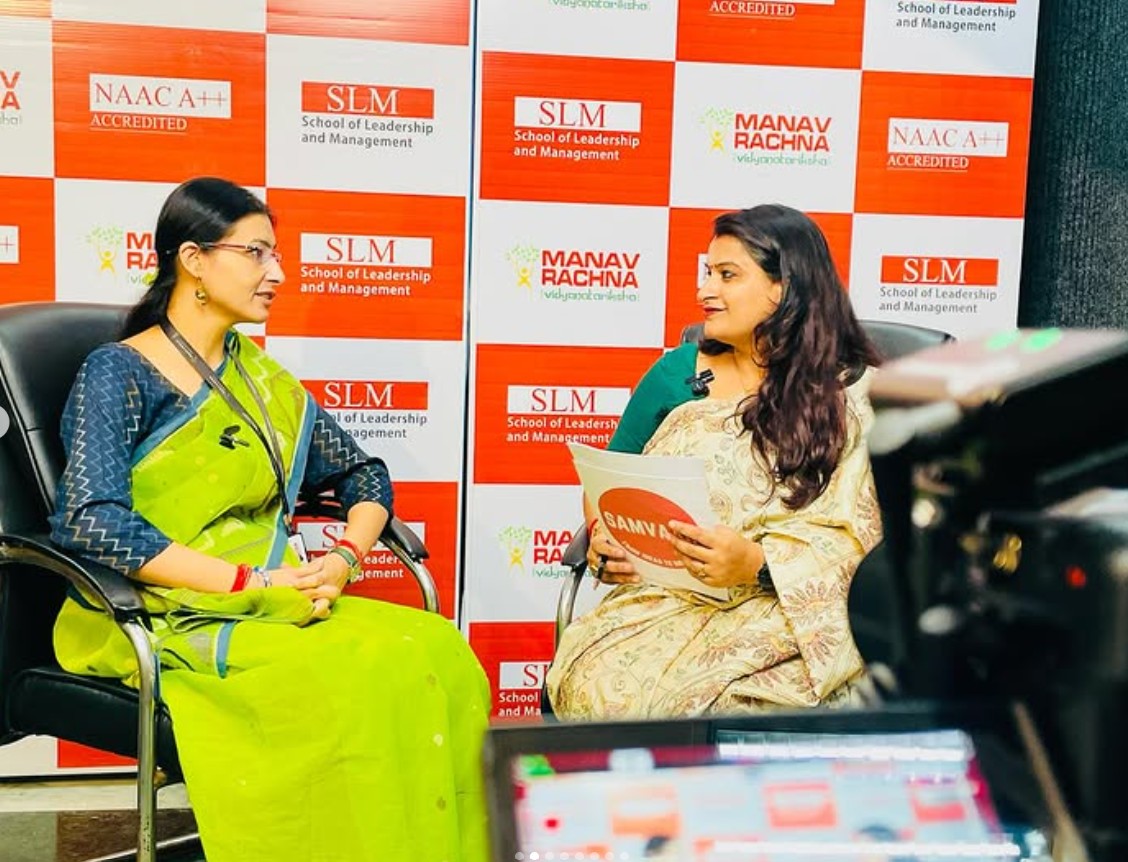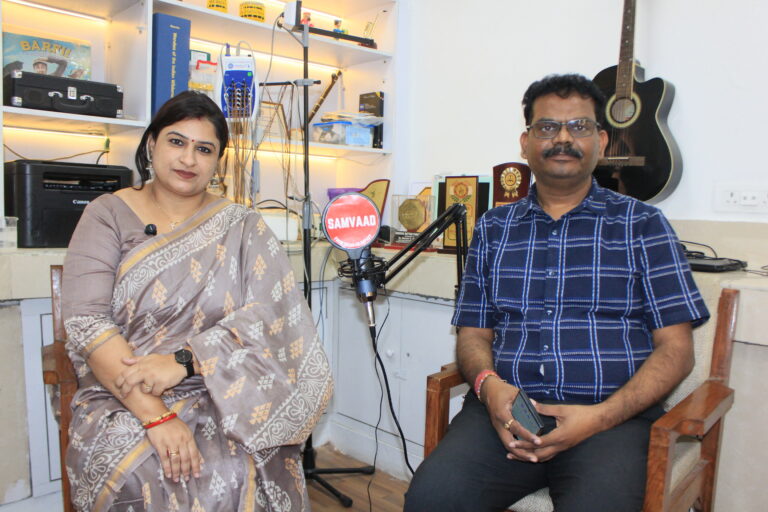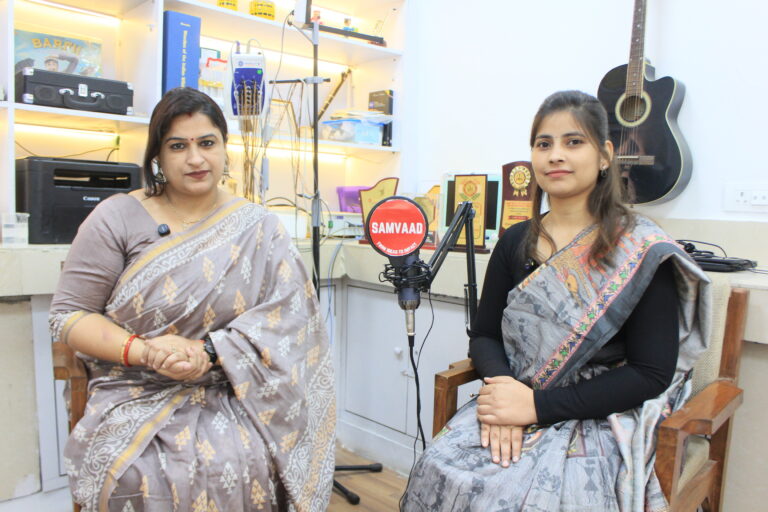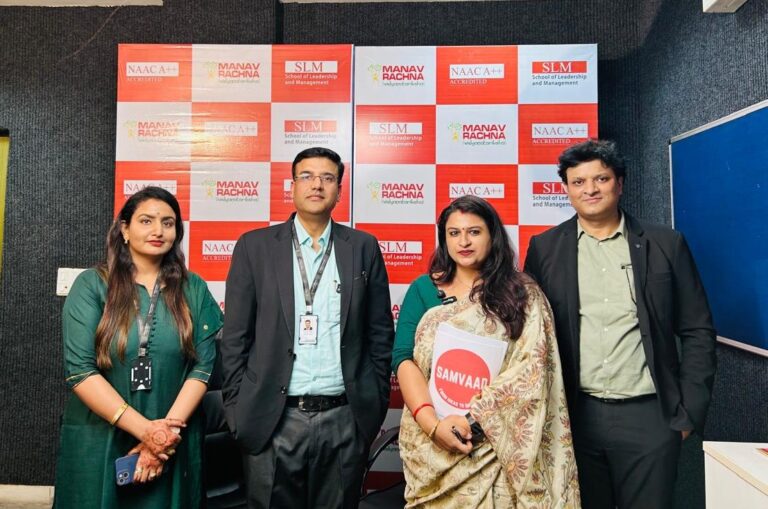AI, Mental Health & The Future of Students: Insights from Dr. Deepti Dabas Hazarika
In the latest episode of SAMVAAD , host Saumya sat down with Dr. Deepti Dabas Hazarika, Dean of the School of Leadership and Management at Manav Rachna International Institute of Research & Studies. With nearly two decades in academia, Dr. Deepti has been at the forefront of embedding empathy, leadership, and values in higher education.
The conversation touched on artificial intelligence, mental health, mentorship, and the future of learning environments. Here are the highlights.
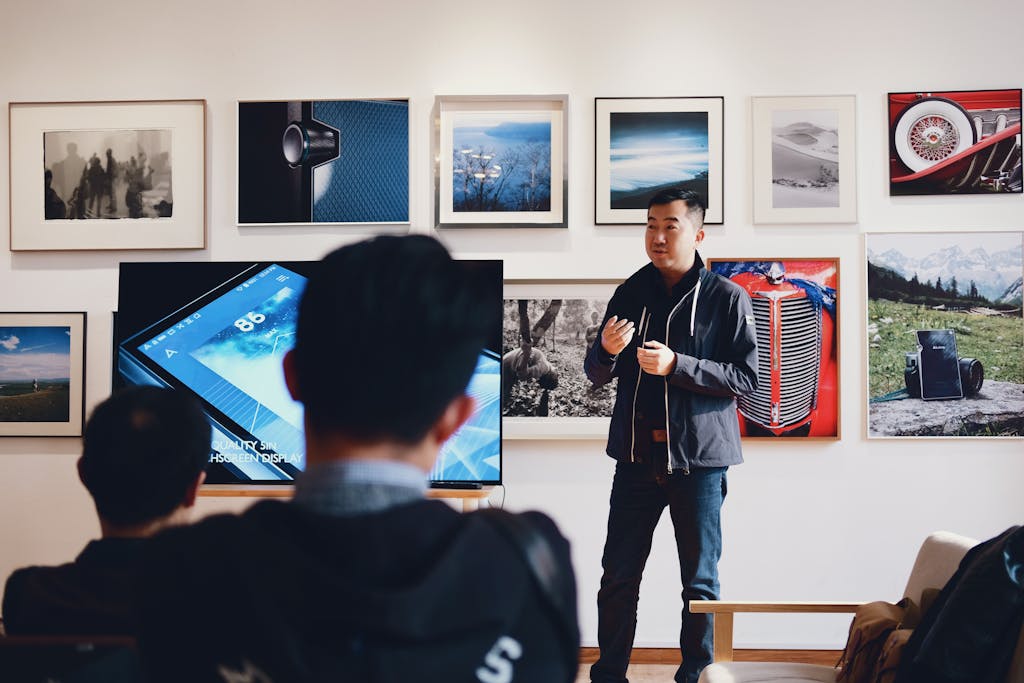
Q: How is Manav Rachna addressing the mental health challenges of its students and faculty?
Dr. Deepti broke this down into two parts: students and faculty.
“For any academic institution, students are our mainstay. Everything we do is for them. On the other side, we have faculty and administration – the glue that holds the system together,” she explained.
The university has developed a multi-tier mentoring ecosystem:
- Faculty mentors serve as “friend, philosopher, and academic parent” throughout a student’s journey.
- Peer mentoring pairs senior students with freshers, creating an approachable support system.
- Industry mentorships bring senior professionals to guide students on balancing academics with real-world challenges.
- Alumni networks extend this guidance globally.
“We call it a family-like environment. Students spend their most formative years here, and we ensure they never feel alone,” she said.
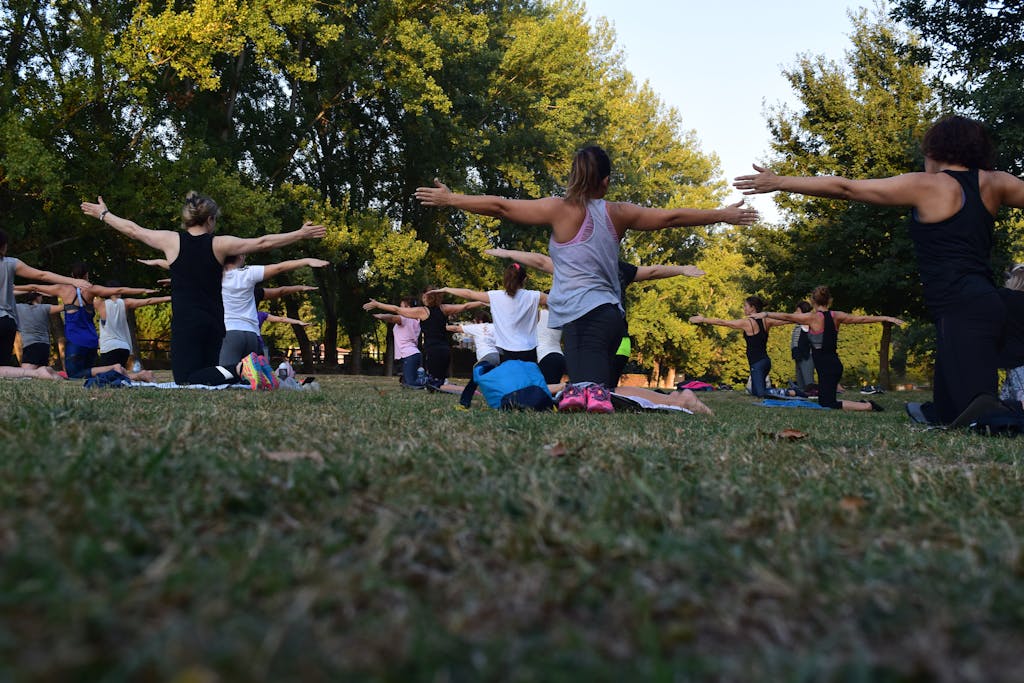
Q: Should universities proactively add mental health-focused courses?
While mental health is often suggested as a stand-alone subject, Dr. Deepti offered a nuanced perspective.
“If a student scores low in a dedicated mental health course, it may actually harm their well-being. Instead, we’ve embedded values and resilience across subjects,” she explained.
Through National Education Policy (NEP 2020), the university has already integrated:
- Universal Human Values (UHV)
- Indian Knowledge Systems (IKS)
- Sports, yoga, and fitness as mandatory modules
According to her, real mental well-being is not in textbooks but in how students are treated, how teachers role-model empathy, and how conducive the environment feels.
“Positive environments lead to positive psychology, and that’s the foundation of mental well-being,” she stressed.
Q: Can AI predict mental health crises? Would you trust it?
Dr. Deepti’s answer was clear: AI is an enabler, not a replacement.
“AI works on pre-fed programs. It can analyze patterns, just like a blood test might suggest future health risks. But mental health is unique, every day is different, every person is different. To say AI can predict crises would be an overstatement,” she noted.
She acknowledged that AI-driven tools, like voice assistants or wellness chatbots, can provide companionship and initial support, especially for single children or students living away from family. But the human touch—emotional and intellectual capital—cannot be replicated.
Q: Many students fear AI will steal their jobs. What’s your take?
Calling it a myth, Dr. Deepti reframed AI as a tool to enhance human capability.
“Earlier, nobody tracked data per stock keeping unit. Today, AI can generate patterns and insights in seconds. But AI won’t tell you what to do with that data—you must have the critical thinking to interpret and apply it,” she explained.
For her, the key lies in preparing students to navigate data, recognize patterns, and derive insights, rather than fearing automation.

Takeaway: Human Capital Above All
Throughout the conversation, one theme was consistent, while AI and systems evolve, human connection remains irreplaceable.
Dr. Deepti summarized it best:
“Education is about making better human beings, not just professionals. Emotional capital and intellectual capital are uniquely human, and that’s our strength.”
As universities across India adapt to NEP 2020, AI-driven tools, and rising mental health concerns, her insights serve as a reminder: technology should enable, not overshadow, the human side of education.
Saumya D Tewari | 9811901985
Write to us at samvaadconnect@gmail.com
